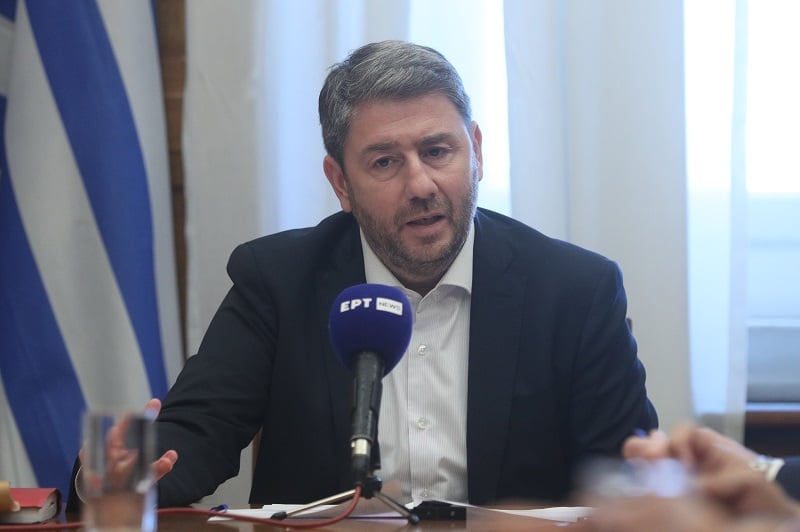“The country is experiencing a deeply institutional decline that bears the signature of the Prime Minister, Kyriakos Mitsotakis,” Nikos Androulakis argues in an article in “Kathimerini” and submits five proposals to restore citizens’ confidence in institutions.
In his article entitled “The Mitsotakis Government has passed Rubicon of institutional arbitrariness”, the president of the PASOK-Main of Change is strongly criticized by the Prime Minister, a political-as he commented-“who in 2019 wore the reformist’s clerk and the Evangelist”. “Returning to ‘regularity’, however, proved to be a deliberate deception. The Staff state functioned as a Trojan horse to establish the prime minister’s regime practices, “he notes. “He continued to use the state as a loot, as a tool of customer management and opaque power focusing on the Maximus Palace and with the aim of fully controlling the financial sources of the economy, manipulating the institutional counterbalances and part of the media,” he adds.
Mr. Androulakis emphasizes that the people were expecting a radically different model of governance “after a lost decade for the country and younger generations due to the serious economic adventure we have experienced.” “At a time when the citizen is suffering from accuracy, rents in rent, electricity, supermarkets, some Mitsotakis government’s likes have made sure to maintain a permanent and open account with the public treasury,” he commented. He notes that “the OPEKEPE scandal is the tip of the iceberg: from the strengthening of the oligopolies and the privileged distribution of billions of euros in the recovery fund to the record of employees and the orgy of direct assignments”.
The PASOK president accuses the government of further making “the systematic weakening of the institutional antibodies and the depreciation of the independence of justice”, that the prime minister “ignored court rulings, such as the CoE on the scandal of the scandal, while in many cases used by the CoE. His ministers. ” It talks about the “emancipation” of the operation of the House with what happened last week.
Mr Androulakis emphasizes that “the prime minister has forgotten what he complained before 2019 and today behaves as if there are only enemies or obedient servants of Maximus”. On the contrary, he notes that PASOK, which is struggling to become a “credible government power”, is determined to implement “radical proposals in order to restore the confidence of the citizens in institutions:
1. With a change in the way of choosing the leadership of justice, to cease to be a one -party choice.
2. By amending the law on the responsibility of ministers to stop the phenomena of immunity and impunity.
3. By banning public office for four years after the judges have been retired, in order to protect the independence of the judiciary.
4. In a coherent framework to put an end to the looting of public money: establishing a 5% ceiling on the value of direct assignments on all the credits of the contracting authority. In addition to the abolition of relevant reports that limit the application of the ceiling to specific types of direct assignments and by reducing the maximum amount of direct assignments to EUR 20,000 (more VAT). In 2024 – according to official data – 76.7% of contracts were signed directly. In Greece, 55% of the competitions end up in only one offer, when the EU is 32%.
5. With a robust institutional framework for combating black political money. The case of funding the truth team by individuals is revealing. “
He notes that PASOK has submitted to the House most of these “structural reforms”, which “constitute interventions, which enhance democracy and the effectiveness of the state”, but the ND has denied their legislation.
Mr Androulakis concludes that “the government’s credibility is in the nadir and its last attempt is to drag the whole political world with it by sinking it into unreliability with unpredictable consequences for the country’s stability and perspective.” He emphasizes, inter alia, that “PASOK until the day of national elections will give the struggle for political change, because the people require a change of cruise rather than the perpetuation of opacity and decline.”
